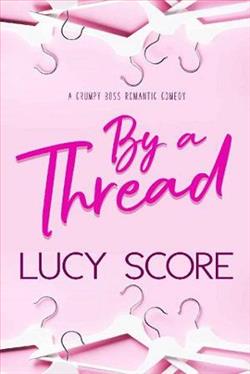Page 36 of The Lincoln Myth (Cotton Malone 9)
“I could use your help,” he finally said.
“Then you have it.”
“We’ll discuss it more tomorrow.” He gently kissed her. “Good night.”
And he walked away, climbing to the third floor.
She listened as his footfalls receded.
Cotton had sent her another message with his accusation.
One she’d received, loud and clear.
And something had become abundantly clear.
This Josepe Salazar was not the man she once knew.
THIRTY-EIGHT
WASHINGTON, D.C.
5:20 P.M.
STEPHANIE HAD BEEN PROVIDED THE ADDRESS BY DANNY DANIELS. Then she’d listened as Daniels explained how her discretionary account was short some $500,000 thanks to an adjustment made to confidential audits conducted by the Justice Department. The attorney general’s assistance had been recruited, though he hadn’t been told the reason why, only that it was necessary that her job be in jeopardy. She thought, perhaps, the AG might actually like that, since the two of them had been known to clash. The appropriate leaks of the White House’s suspicions were made yesterday evening, after Edwin returned to Washington, to ensure that the rumor quickly made its way to Senator Thaddeus Rowan.
“I hate that righteous SOB,” the president said. “And I don’t say that about many people.”
“I never realized you and Rowan were enemies.”
“And nobody ever will. When I assemble a firing squad, we don’t line up in a circle.”
She smiled. Finally, a little levity. She’d been worried about him.
“Don’t get me wrong,” the president said. “I have the utmost respect for the Mormon religion. Charles Snow has always been straightforward with me. But every religion has its share of fanatics and nutcases. Unfortunately for us, one of theirs serves as head of the Senate Appropriations Committee.”
She’d left the president sitting alone at the dining room table. Edwin had escorted her to the Mandarin Oriental, the hotel where she stayed when in Washington. She’d freshened up, checked in with Atlanta, and spoken with Cassiopeia Vitt on the phone, learning what happened in Salzburg at the auction.
“You knew Cotton was coming here,” Cassiopeia said. “And said nothing?”
“I merely suspected it. And yes, I kept my fears to myself.”
“I should walk away from this right now.”
“But you won’t.”
“Cotton said that your agent is dead. He accused Josepe of his murder.”
“He’s right, on both counts.”
“I need to prove that to myself.”
“You do that. And while you’re at it, get your head screwed on right.”
“I’m not one of your people, Stephanie. I don’t take orders from you.”
“Then leave. Now.”
“If I leave, Cotton will still be here.”
“That’s right. And we’ll deal with Salazar our way.”
A taxi deposited her at the curb.
She was back in Georgetown, not far from where Wisconsin Avenue and M Street crossed. Three hundred years ago it was the farthest point upstream that oceangoing ships could navigate the Potomac River, so the spot became a trading post. Now it was a trendy suburb of the nation’s capital, home to high-end fashion shops, outdoor bars, and renowned restaurants. Parkland and green space buffered exclusive neighborhoods from urban sprawl. The homes and town houses were some of the priciest in the city, Rowan’s a lovely Federal-style building nestled among a cheerful cluster of Colonial and Victorian architecture. A towering canopy of live oaks shadowed the two-story white brick home. Flowers lined a brick walk and sprouted from planters dotting the porch railing. She climbed the stairs, crossing wooden planks, and rang the bell. Daniels had said that the senator should be arriving home from Utah around four thirty.
Rowan himself answered.
He was one of those people who made no attempt to reduce their stature, maintaining a perfect military bearing. His thick pale hair and weathered face cast the look of an aging sportsman. The eyes were like chips of coal, and their gaze appraised her with a palpable wariness. Her being here was a serious breach of protocol, a violation of the unwritten rule that proclaimed a person’s home sacrosanct, never to be breached.
“I need to speak with you,” she said.
“That would be wholly inappropriate. Call my office. Set up an appointment, with a Justice Department lawyer present. That’s the only way we’re going to talk.”
He moved to shut the door.
“Then you’re never going to see what it is you’re after.”
The door stopped just before closing.
“And what is that?” he coolly asked.
“What Mary Todd Lincoln wrote to U. S. Grant.”
She glanced around and admired the two Regency chairs and an antique settee, their burnished-gold upholstery held in place by dull brass tacks. Wooden pedestal tables supported an assortment of family photographs. Two crystal lamps with oversized tassels dangling from their shades burned softly. The parlor was like stepping back to the 19th century. Memories flooded through her mind of her grandmother’s house, where many of the same things could once be found.
“I’m listening,” Rowan said.
He sat across from her in one of the chairs, his spine rigid, posture perfect.
“I can’t respond to your subpoena. And not just for the obvious reason that it’s overbroad.”
“Why did you mention Mrs. Lincoln?”
“I know about your efforts to access some of the classified archives. I’ve been around a long time, Senator. Just like you. You sent your subpoena as a way to grab my attention. You tried pressuring, bullying, and threatening some of my colleagues in other intelligence branches and came up short. So you decided to give me a try and thought some carefully applied legal pressure might work. What you didn’t know was that I have a problem.”
“As I’ve been told. My chief of staff says the White House is looking at you.”
“To put it mildly. And your subpoena is shining a bright spotlight right in my direction.”
“What have you done?”
She chuckled. “Not yet. No admissions until we have a deal.”
“And why would I trust you?”
She reached into her jacket pocket and removed the copy of Mary Todd’s original letter, along with the typed version. Rowan accepted both and read. Though he tried hard to contain himself she could see the excitement.
“Is that some of what you’re after?” she asked.
He shrugged, as though the answer was obvious. “You seem quite knowledgeable about my activities.”
“I’m in the intelligence business. It’s my job. But those requests of yours have screwed me up good.”
“In what way?”
“Let’s just say that I have an accounting problem. One I was about to quietly resolve, until you came along. Now the White House is asking questions I don’t want to answer.”
He appeared surprised. “I never took you for a thief.”
“Then let’s call me an underpaid public servant who wants to enjoy her retirement years. Once the current administration is gone, I’ll be gone, too. It’s the perfect time for me to fade away. I just needed a few more months, without any undue attention.”
“Sorry to interfere with your plans.”
“It might not be so bad, after all,” she said, keeping her voice matter-of-fact. “There’s something else I think you might want to see. Something I doubt you know exists.”
She found the copies of Madison’s original note and the typed rendition.
Rowan read them.
“You’re correct. I did not know this existed.”
She glanced at her watch. “And by morning I’ll have whatever it is Madison hid in his summer study.”
She could see he was impressed.
“Which you want to use to bargain with?”
She shrugged. “I have what you want and you have what I wa
nt.”
Her stomach turned. Voicing those words was disgusting enough, but the man sitting across from her made things worse. His public image was one of staunch conservatism. No nonsense. Straight shooter. Zero scandal. But he had no problem turning a blind eye to a corrupt public employee in order to get what he wanted. Even worse, he’d apparently bought into her story, which meant he had little to no opinion of her.
“You’re correct,” he said. “There are certain documents I would like to see. They are important … on a personal level. Unfortunately, I’ve been unable to access them. This letter from Mrs. Lincoln was one that I believed existed. You see, she sent a similar letter to the head of my church. We have that in our archives. But this note from Mr. Madison is something entirely new.”
“I don’t know what you’re doing, nor do I care. I just want all this attention on me to go away. I want to serve out my time till Daniels is out, then I’m gone.” She added a bitter edge to her voice. “I came here to make a deal. If I can get you off my back, I can handle the White House. But I can’t fight them and Congress. I brought two offerings to show my good faith. By morning, I’ll have a third.”
“I, too, am in my final years in office. I will not be running again.”
That was news.
“Retiring back to Utah?”
“Back to Utah. But no retirement.”
She felt like an accused walking to the scaffold after tying the noose around her own neck. But she decided to embrace her new persona. It wasn’t often that one was given a free pass to break the law.
“Then your subpoena will be withdrawn?” she asked.
“Not exactly.”















